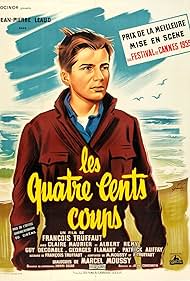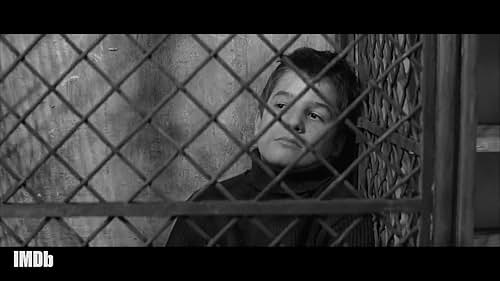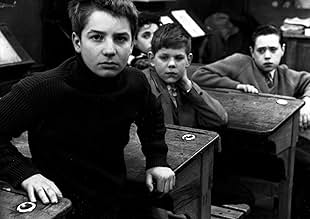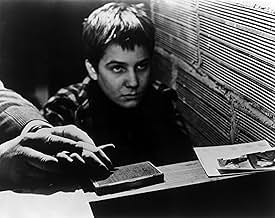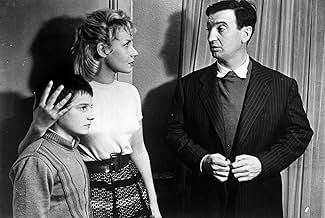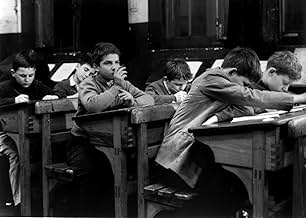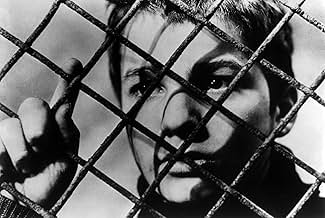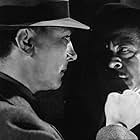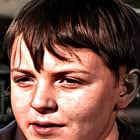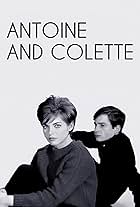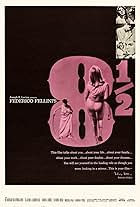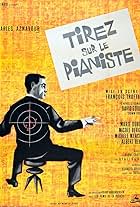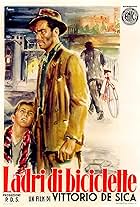IMDb RATING
8.0/10
130K
YOUR RATING
A young boy, left without attention, delves into a life of petty crime.A young boy, left without attention, delves into a life of petty crime.A young boy, left without attention, delves into a life of petty crime.
- Nominated for 1 Oscar
- 8 wins & 5 nominations total
Serge Moati
- Un élève
- (as Henry Moati)
Storyline
Did you know
- TriviaAll the young actors who unsuccessfully auditioned for the role of Antoine were used in the classroom scenes.
- Goofs(at around 1h 39 mins) At the end, right as Antoine reaches the water's edge, the shadows of the crew can be seen on the sand and water.
- Quotes
Psychiatrist: Your parents say you're always lying.
Antoine Doinel: Oh, I lie now and then, I suppose. Sometimes I'd tell them the truth and they still wouldn't believe me, so I prefer to lie.
- Alternate versionsThe Spanish (Spain) dubbed version of this film has about 12 minutes of footage missing. When Antoine's mom returns home and argues with her husband while Antoine pretends to sleep, the scene in which the family heads home after going to the movie theater, when Antoine and René smoke and drink in Rene's room and when they throw things from the ceiling with blow pipes, are among the scenes that are missing. The scene in which the father talks about the new secretary sleeping with the boss is dubbed to the father speaking about the boss liking the new secretary and her being a very good worker and being promoted because of that. The interview with the psychologist was dubbed with the psychologist asking Antoine if he has had a girlfriend, and he talks about dating some girls but not liking any of them and finding a girl he liked but who chose an older guy instead of him, when in the original, he is asked if he's slept with a woman and he goes on to talk about when he tried to get one to sleep with.
- ConnectionsEdited into Histoire(s) du cinéma: Une vague nouvelle (1999)
- SoundtracksLes Quatre Cents Coups
Music by Jean Constantin
Featured review
As the seminal work of the French New Wave, the 1959 directorial debut of 27-year old Francois Truffaut has such a vaunted reputation that the final film is bound to disappoint. However, the pristine print that comes with the new Criterion Collection DVD really makes me realize what a brave and emotionally resonant film he made ostensibly about his own troubled adolescence. It's worth seeing twice - once for the film itself and a second time to listen to the newly recorded commentary by Truffaut's childhood friend Robert Lachenay (the true-life inspiration for Rene in the film). Speaking in French but subtitled in English, he provides insights into the story and context of the film that no film scholar or even production associate could possibly provide. As a point of comparison, listen to the by-the-numbers commentary by film scholar Brian Stonehill (recorded back in 1992), which is thoughtful and well researched but devoid of the human factor.
The film's title comes from a French colloquialism that translates into "raising hell", an appropriate reference since the story focuses on a thirteen-year old hellion named Antoine, living in a poor section of Paris and neglected by parents downright arrogant in their dysfunctional nature. Antoine consequently lives a street urchin's life as he lies to people in authority - his parents, his teachers, and the police - since he admits rather sadly that the truth doesn't make any difference. Truffaut tracks Antoine's life through a series of dispiriting episodes that ultimately lead him to be sent away to a reformatory after he gets caught returning a stolen typewriter and his mother and stepfather tire of their responsibility over him. To Truffaut's immense credit, the film feels stark and naturalistic without resorting to dramatic manipulation, and he finds the ideal Antoine in Jean-Pierre Leaud, who brings out the confusion, angst and wandering attention of his character in realistic terms. He is especially impressive in an apparently improvised scene where he is interviewed by the school authorities about why his life has come to this. It is heartbreaking to see how bleak his life becomes, yet Leaud imbues the incorrigible, often intolerable side of Antoine with fervor.
There are several interesting extras included with the 2006 DVD package starting with two separate interviews with Truffaut, the first a year after the film's release discussing he film's impact and the second five years later when we see the filmmaker in a more reflective mood about his cinematic influences. Leaud is featured in 16mm screen test footage where his naturally ebullient personality emerges and then after the 1959 Cannes Film Festival where puberty has apparently kicked in and then in 1965 as a comparatively reserved twenty-year old. The screen test of Richard Kanayan (who has a minor role as a schoolmate) is amusing for his Satchmo-inspired rendition of "When the Saints Go Marching In" and his eerie resemblance to Fantasy Island's Tattoo, Herve Villechaize. Be forewarned that the film is relentlessly downbeat, but Truffaut's emotional investment and consummate abilities as a filmmaker, even at this stage of his career, make this essential viewing.
The film's title comes from a French colloquialism that translates into "raising hell", an appropriate reference since the story focuses on a thirteen-year old hellion named Antoine, living in a poor section of Paris and neglected by parents downright arrogant in their dysfunctional nature. Antoine consequently lives a street urchin's life as he lies to people in authority - his parents, his teachers, and the police - since he admits rather sadly that the truth doesn't make any difference. Truffaut tracks Antoine's life through a series of dispiriting episodes that ultimately lead him to be sent away to a reformatory after he gets caught returning a stolen typewriter and his mother and stepfather tire of their responsibility over him. To Truffaut's immense credit, the film feels stark and naturalistic without resorting to dramatic manipulation, and he finds the ideal Antoine in Jean-Pierre Leaud, who brings out the confusion, angst and wandering attention of his character in realistic terms. He is especially impressive in an apparently improvised scene where he is interviewed by the school authorities about why his life has come to this. It is heartbreaking to see how bleak his life becomes, yet Leaud imbues the incorrigible, often intolerable side of Antoine with fervor.
There are several interesting extras included with the 2006 DVD package starting with two separate interviews with Truffaut, the first a year after the film's release discussing he film's impact and the second five years later when we see the filmmaker in a more reflective mood about his cinematic influences. Leaud is featured in 16mm screen test footage where his naturally ebullient personality emerges and then after the 1959 Cannes Film Festival where puberty has apparently kicked in and then in 1965 as a comparatively reserved twenty-year old. The screen test of Richard Kanayan (who has a minor role as a schoolmate) is amusing for his Satchmo-inspired rendition of "When the Saints Go Marching In" and his eerie resemblance to Fantasy Island's Tattoo, Herve Villechaize. Be forewarned that the film is relentlessly downbeat, but Truffaut's emotional investment and consummate abilities as a filmmaker, even at this stage of his career, make this essential viewing.
Details
- Release date
- Country of origin
- Languages
- Also known as
- The Four Hundred Blows
- Filming locations
- Pigalle, Paris 9, Paris, France(location)
- Production companies
- See more company credits at IMDbPro
Box office
- Gross US & Canada
- $509
- Opening weekend US & Canada
- $11,206
- Apr 25, 1999
- Gross worldwide
- $194,350
- Runtime1 hour 39 minutes
- Color
- Sound mix
- Aspect ratio
- 2.35 : 1
Contribute to this page
Suggest an edit or add missing content

